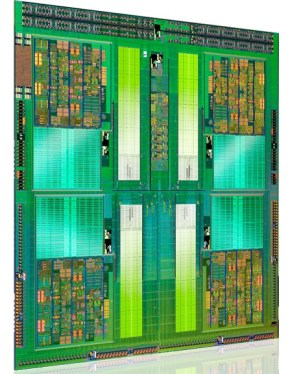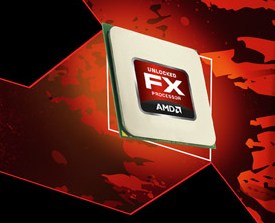The Intel-AMD war has been going on a long time, and I hope it will be going on longer. The last few years have been hard on the underdog, however, with huge growth by Intel in both the low-power and high-performance sectors. The Core 2 Duos excelled, as did the Core i* series, and its most recent consumer series, the Sandy Bridge update to the i*s, is a monster. AMD has consistently lagged behind, though from the other side of the table you might say they’ve been nipping at Intel’s heels quite effectively for years.
Bulldozer was supposed to be the platform that finally brought them up to speed, but it’s been delayed for a long time, and now it’s launching to less than stellar reviews.
I’ve skimmed through Anand’s thorough-as-usual review, and the conclusion is that it’s just not competitive. HardOCP, PC Perspective, Tom’s Hardware, and Neoseeker agree. Whether it’s synthetic or real-world testing, AMD’s best FX processors don’t stand up to the middle of Intel’s line, or even to their own processors from last year.
 Is it a disaster? Not exactly: I’m guessing at some point along the line, someone at AMD said “look, we have to release something sometime. Our customers aren’t going to wait forever.” And despite the fact that they have many improvements waiting in the wings (according to a roadmap AMD shared, presumably as a sort of covert apology), they went to market with the processors they had.
Is it a disaster? Not exactly: I’m guessing at some point along the line, someone at AMD said “look, we have to release something sometime. Our customers aren’t going to wait forever.” And despite the fact that they have many improvements waiting in the wings (according to a roadmap AMD shared, presumably as a sort of covert apology), they went to market with the processors they had.
Unfortunately, despite the new architecture and insane transistor count (the 8-core 8150 has around 2 billion), performance and efficiency per core just plain isn’t that good. There are a few tests on which Bulldozer takes on Sandy Bridge well, such as those truly optimized for high core counts, but on single-core tasks it gets destroyed.
There’s hope: this is just the first iteration of the new architecture, and it’s likely we’ll see both a new line and a serious performance boost when Windows 8 hits. In the meantime, while the Bulldozer processors provide decent performance for a good price, no one seems to have found a good reason to buy one other than that they’re not Intel.
If you do decide to buy, get the 8120. It’s the same silicon as the 8150, apparently, but the better-testing samples are getting 8150 branding and a higher stock clock speed. If you don’t mind a doing the overclocking yourself, you can save $50 by going with the 8120 and giving it a little boost.
